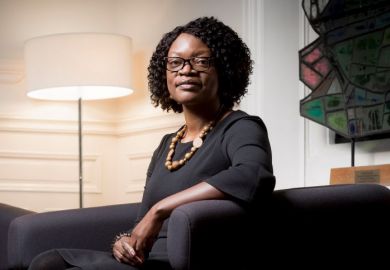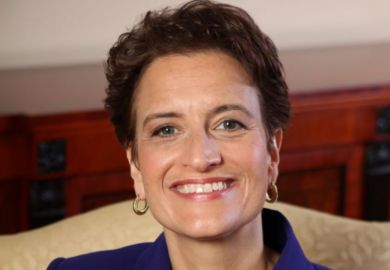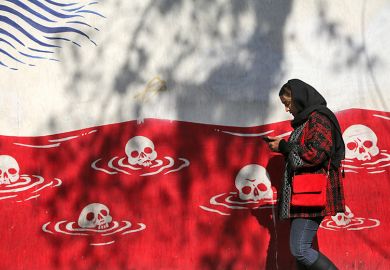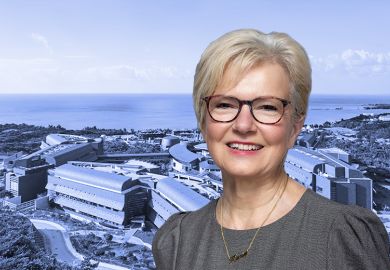Bart Rienties is professor of learning analytics at the Open University. After completing a PhD in educational psychology at Maastricht University, he spent three years as a lecturer at the University of Surrey before joining the OU. Professor Rienties’ research focuses on how big data on student engagement and achievement can be used to identify learners in need of intervention, and to inform pedagogical best practice. Having received a kidney transplant after renal failure, Professor Rienties is also a member of the Dutch team that won the cycling time trial at last year’s World Transplant Games.
Where and when were you born?
Terneuzen in the Netherlands, on one of the hottest days in the summer of 1976.
How has this shaped you?
Growing up in a small city in a remote part of the Netherlands has given me a love for the countryside and living close to nature. At the same time, being isolated from “the world” has sparked my interest in travel and meeting other people.
What is the potential of learning gain in higher education?
Being able to understand what may truly matter to students, graduates and employers, and being able to improve teaching and learning practices based on how some students gain while others may not over time is immensely powerful.
What’s the best way to measure learning gain?
There is no “golden” secret recipe. In line with good evidence-based research, we need to develop strong, interconnected measurements that mix learning gain proxies of effect, behaviour and cognition to truly understand why some students gain a lot from higher education, while others might not benefit as much.
What’s the biggest misconception about your field of study?
That we are mining students’ and teachers’ data just to save costs and replace people with robots. Learning is complex and a social endeavour at the same time, and would not be possible without human support and personal care.
Is there danger that learning analytics data could be misused?
Like with any tool or data, the affordances are nested in what a user is actually doing with those tools. For example, the car has revolutionised transport but it can be a lethal weapon when it comes to cyclists and pedestrians. Therefore, we should develop skills and expertise in sensible data usage and awareness for both producers and consumers of data.
Have you ever had a eureka moment?
Yes, when we started to link learning design data on how teachers were designing courses at the OU with what students were actually doing at the OU. We found that most students did not follow what teachers were designing. Most learning analytics researchers seem to forget that it is about linking data from students with teachers, and vice versa.
If you weren’t an academic, what do you think you’d be doing?
My dream was to become a lorry driver when I was young, so that I could travel the world while meeting new, interesting people and listening to diverse music. In a way, academia does offer an excellent travel platform.
What divided your life into a “before” and “after”?
Before and after I became ill, and was diagnosed with renal failure. I am very privileged that my kidney transplant donated by my mother is such a success and that I can continue my quests into educational research and (hopefully) inspire others.
What do you do for fun?
First, I am a keen cyclist and proud member of the Dutch transplant cycling team, as well as a member of my local Team MK. Second, if there is time, I like to go on the PlayStation to relax and play in a different world other than academia.
You recently took part in the World Transplant Games. What motivated you to take part?
As a renal transplant patient, I am immensely proud that I am able to say that I am a world champion in team time trials in cycling. Having received a second chance in life, I want to show what amazing things people can still do.
If you were universities minister for a day, what policy would you introduce?
Given the near universal findings that every £1 invested in education transforms to £6 to £8 of growth for the economy, I never understood why the UK government is not investing more into all forms of education. Education changes lives so I would sign a national educational insurance tax reform that gives everyone in the UK the right to free, continuous education.
What keeps you awake?
Not giving sufficient time and attention to my amazing team members, PhD students and collaborators, and wondering whether I have been a positive role model. Failing is only a natural human trait and I hope that I have not disappointed too many people.
Tell us someone you admire.
This probably sounds cheap, but I really admire my wife, who is an excellent senior research fellow at the Institute of Development Studies [at the University of Sussex]. Working in complex and difficult circumstances [in order] to understand and reduce child poverty in developing countries, it still amazes me how she keeps on having the same positive energy [and desire] to truly make a difference in a world that increasingly does not seem to really care for the less privileged.
Do you live by a motto or philosophy?
Het leven is een groot feest, maar je moet wel zelf de slingers ophangen. A classic Dutch saying that life is one great celebration, but you will have to ensure that you bring your own party hats and candles to put on your birthday cake. So try to enjoy what you are doing and follow your heart.
sophie.inge@timeshighereducation.com
Appointments
Maud Mandel has been appointed president of Williams College in Massachusetts. Professor Mandel will join the liberal arts institution in July from Brown
University, where she has been a faculty member since 2001 and where she currently serves as dean of college, the senior undergraduate academic officer. She is an expert in Jewish history, focusing on the treatment of minorities in 20th-century France. Michael Eisenson, chair of the college’s board of trustees, said that Professor Mandel “has a distinguished record as a scholar, a teacher and an academic leader”. “She embodies the values at our core and will provide outstanding leadership as we continue to pursue our shared aspirations for Williams,” he said.
Sasha Roseneil has been appointed dean of the Faculty of Social and Historical Sciences at UCL. She will be based in the UCL Institute of Advanced Studies as professor of interdisciplinary social science. Professor Roseneil will join UCL in September from the University of Essex, where she is executive dean of the Faculty of Social Sciences and professor of sociology. Professor Roseneil said: “The faculty brings together an extraordinary group of academics with a huge wealth of expertise and talent, and I am looking forward to working with colleagues from across its departments and research centres, and to strengthening links with cognate areas across UCL.”
John Cech has been appointed the 18th president of Carroll College, a Catholic liberal arts institution in Montana. He is currently deputy commissioner of higher education for the Montana University System.
Mary Van Brunt has been named vice-president for academic affairs at Gwynedd Mercy University, a Catholic institution in Pennsylvania. She was previously the founding dean of the School of Business, Arts and Media at Cabrini University in the state.
The Earl of Burlington is the new chancellor of the University of Derby, succeeding his father, the Duke of Devonshire.
Register to continue
Why register?
- Registration is free and only takes a moment
- Once registered, you can read 3 articles a month
- Sign up for our newsletter
Subscribe
Or subscribe for unlimited access to:
- Unlimited access to news, views, insights & reviews
- Digital editions
- Digital access to THE’s university and college rankings analysis
Already registered or a current subscriber?








